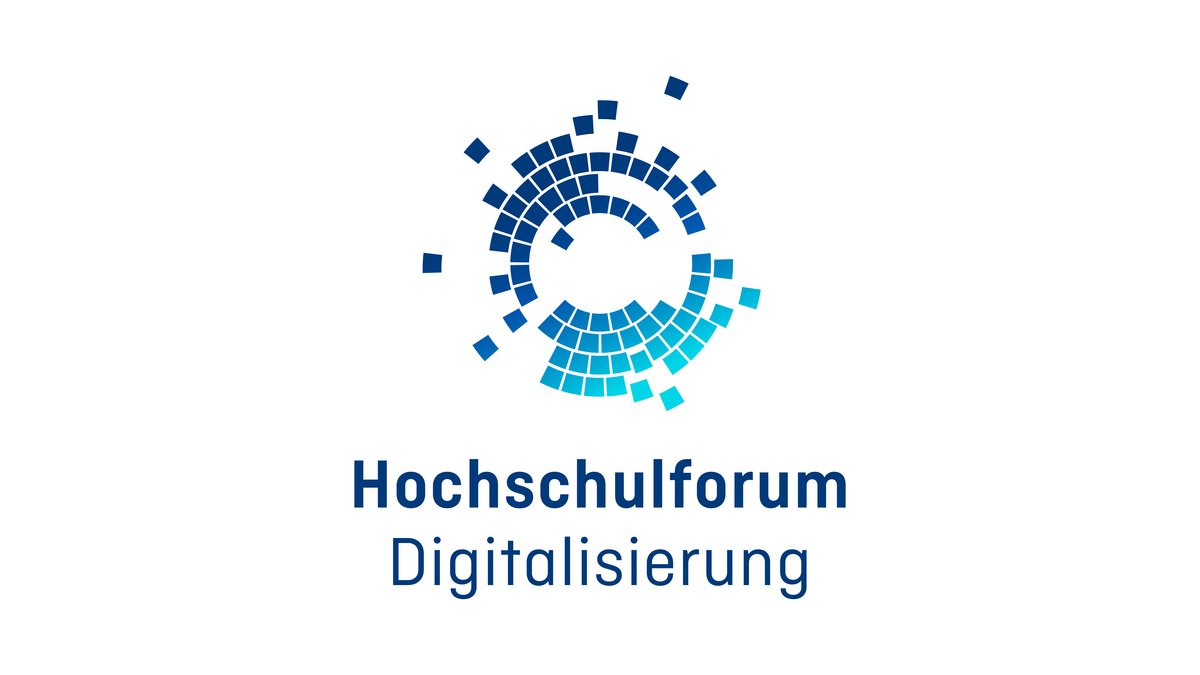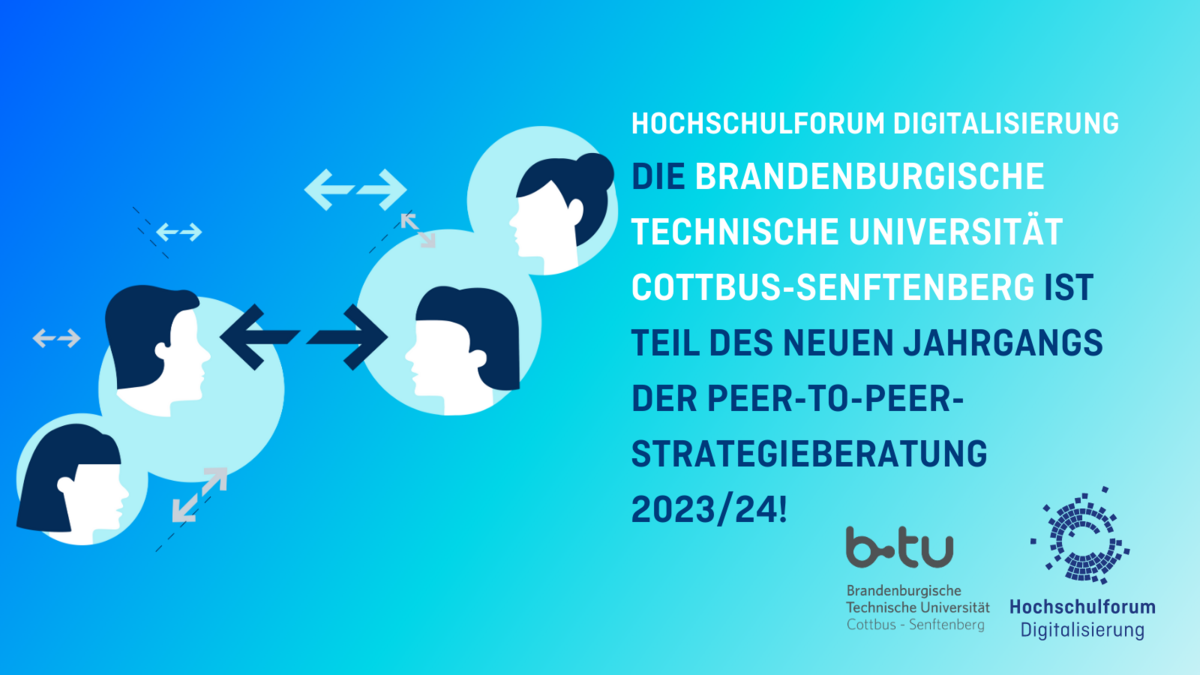New impulses for the BTU's digitization strategy
The HFD supports universities in shaping the digital transformation. Peer-to-peer strategy consulting is a development tool for higher education institutions that want to actively shape the digital transformation in higher education and, in particular, strengthen innovative, digitally supported teaching and learning scenarios in their strategic development. The process is based on the profile and objectives of the respective university.
As part of the program, the starting and target situation at the BTU is analyzed in a participatory process with all relevant internal university stakeholders and with the support of external experts (peers), and university-specific measures for the strategic further development of teaching and learning in the context of digitization are designed.
"At our university, digitization in teaching and learning has been an important topic not only since the Corona pandemic," emphasizes Prof. Dr. Peer Schmidt, Vice President for Teaching and Learning at the university. "For example, we have been developing, testing and integrating digital teaching, learning and examination scenarios for some time now with the support of our Information, Communication and Media Center. A number of projects in the faculties as well as in the central institutions testify to the innovative strength of the BTU. Now we would like to strategically dovetail the various activities in this area even more and further develop them against the backdrop of current conditions and challenges - especially structural change. To support this process, we applied on the part of the BTU to participate in the 7th round of peer-to-peer strategy consulting of the Higher Education Forum on Digitization and are now, of course, very pleased about the positive decision."
The BTU's expression of interest was evaluated very positively by the jury, consisting of Dr. Jens-Peter Gaul, Secretary General of the German Rectors' Conference, as well as representatives of the Stifterverband, the CHE Center for Higher Education Development, and other universities. Due to the clear presentation of the existing and aspired processes, the stringent line of argumentation as well as the focused setting of priorities, the BTU was finally able to successfully qualify for the program.
In the following twelve months, a self-report on the status quo (the current situation) and the objectives will be prepared in a participatory process involving a wide range of stakeholders. During a two-day university visit from the HFD to the BTU in the first half of 2024, the challenges and goals as well as possible development paths will then be discussed and reflected upon with the team of peers on site. The focus of the further development should be on the one hand the flexibilization and individualization of teaching and studies and on the other hand the curriculum development (the new or further development of study programs) with regard to the anchoring of interdisciplinary future skills (the future competencies). Finally, a recommendation report will result from the university visit, from which further steps and measures can be derived.
The process at the BTU is led by the Vice President for Studies and Teaching, Prof. Dr. Peer Schmidt, and coordinated by the IKMZ. A series of workshops are planned for the preparation of the self-report, to which all interested BTU employees and students who would like to actively contribute to the development of studies and teaching in the context of digitization are invited.
The HFD was founded in 2014 as a joint initiative by the Stifterverband, CHE Centre for Higher Education and the German Rectors' Conference and is funded by the German Federal Ministry of Education and Research (BMBF).
Since 2017, there have been 189 expressions of interest regarding peer-to-peer strategy consulting on digitization in studies and teaching. Of these, 36 universities and a network of ten universities have been able to receive advice to date. In addition to the Brandenburg University of Technology Cottbus-Senftenberg, the following universities were selected for the 7th round (2023/24) of peer-to-peer strategy consulting on digitization in studies and teaching: the East Bavarian University of Applied Sciences Regensburg, the Protestant University of Applied Sciences Nuremberg, the Eberswalde University of Applied Sciences for Sustainable Development, the Otto von Guericke University Magdeburg, and the Nordhausen University of Applied Sciences.
As the second largest university and the only technical university in the state of Brandenburg, the BTU assumes responsibility for the sustainable development of the Lusatian region undergoing structural change. With scientific expertise and practice-relevant solutions, it contributes to shaping the major issues of the future and transformation processes. The focus is on networking, interdisciplinary clusters and close cooperation with partners in science and industry.
Good academic supervision, attractive course profiles with modern teaching and learning scenarios, and a student service geared to the needs of students from 125 different nations characterize the study conditions for the approximately 6,800 BTU students, 40 percent of whom come from abroad.
Fachkontakt
Pressekontakt
Kommunikation und Marketing
T +49 (0) 3573 85-283
ralf-peter.witzmann(at)b-tu.de


